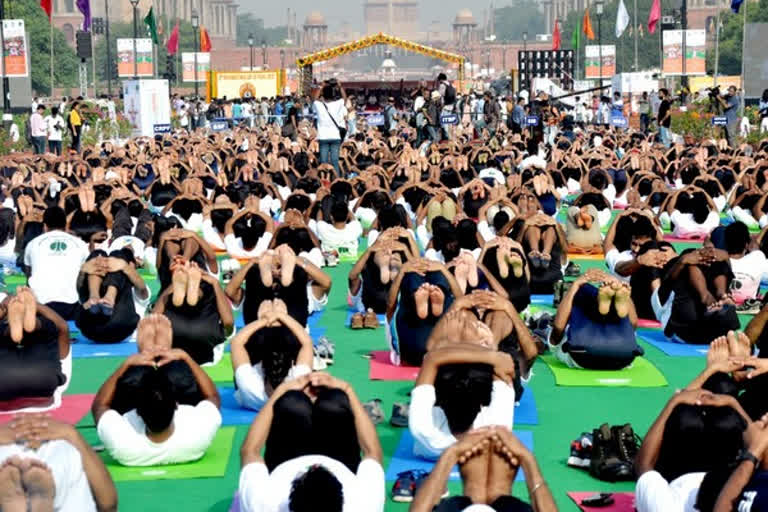New Delhi: On the eve of International Day of Yoga (IDY), the WHO on Monday said policymakers should consider integrating yoga into community-based mental health and well-being initiatives while increasing efforts to leverage the potential of safe and effective traditional medicine. The UN agency's Regional Director for South-East Asia Poonam Khetrapal Singh said regular yoga practice can help people of all ages and incomes achieve adequate physical activity, making it a high-impact, cost-effective way to prevent and control noncommunicable diseases (NCDs) one of South-East Asia Region's eight flagship priorities.
It has been shown to have immediate psychological effects, decreasing anxiety and stress, and increasing feelings of emotional and social well-being. Throughout the COVID-19 response, yoga has helped hundreds of millions of people from all countries and cultures stay healthy and well, highlighting that yoga is for all of humanity the theme of this year's IDY event, Singh said in a statement.
"Consistent with the region-wide push to reorient health systems towards strong primary health care (PHC), policymakers should consider integrating yoga into community-based mental health and well-being initiatives, while also increasing efforts to leverage the power and potential of safe and effective traditional medicine," she said. The region continues to intensify action to increase physical activity and enhance mental health, in line with its flagship priorities - the WHO Global Action Plan on Physical Activity (GAPPA) 20182030, Comprehensive Mental Health Action Plan 20132030, and the Sustainable Development Goals, Khetrapal Singh said.
